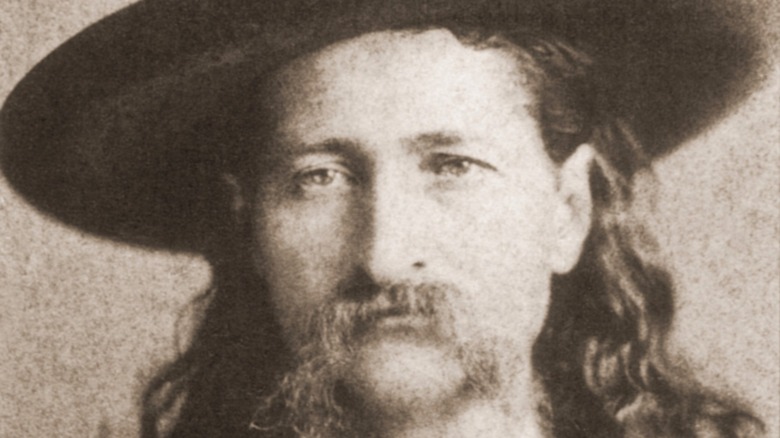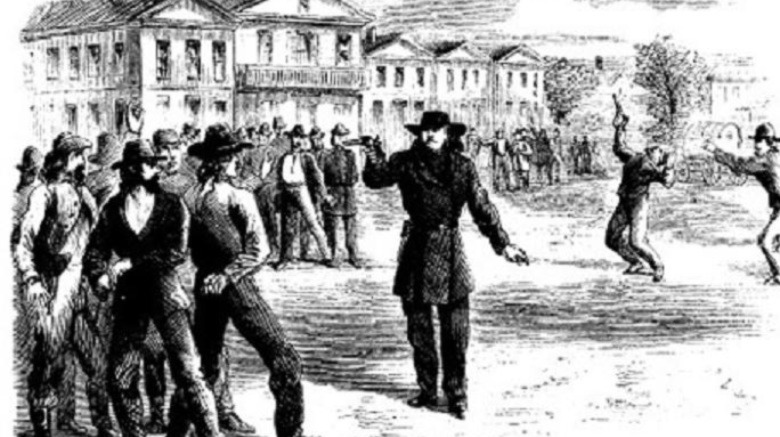Here's What Wild Bill Hickok Accidentally Invented
Wild Bill Hickok has been called a lot of things. A legendary lawman, a hero, a cold-blooded killer — it all depends who you're asking and which moral compass you're consulting.
One thing that isn't up for dispute, though, is his talent with a firearm. Biography deems him "one of the American west's premier gunfighters," reporting that "he was by all accounts a master marksman from an early age." This will surprise nobody, given popular culture's image of Hickok, but it seems he was even more pivotal to today's interpretation of the Wild West than he's given credit for.
One crucial element of any Western-themed media is a classic shoot-out or two. At one point during his perilous career, Wild Bill inadvertently invented the quick draw duel. He was no stranger to gunfights, of course, but one 1865 encounter took a very different turn.
In July of that year, Hickok was gambling in Springfield, Missouri, with a fellow gambler, Davis K. Tutt. Tutt was losing, but then claimed that Hickok owed him money for a horse. Hickok disputed the money owed. According to Tom Clavin's book "Wild Bill: The True Story of the American Frontier's First Gunfighter," Tutt grabbed Hickok's gold watch and declared he was going to keep it until the debt was paid. Furthermore, he proceeded to parade around town, Hickok's watch dangling for all to see.
A debt and a duel
As the old proverb goes, you should never claim a master sharpshooter's watch, show it off around town, and then reach for your gun when the sharpshooter calls you out on your behavior. That's an oddly specific proverb, granted, but it seems to be exactly how things played out here. After another contretemps in the Springfield town square, the two men reached for their guns.
Hickok and Tutt stood about 75 yards from each other, paused only briefly, then both fired. According to the account on the City of Springfield's website, Tutt missed, but Hickok's shot struck his foe in the chest. Tutt staggered a few steps before falling down dead. Friends of Tutt were standing behind Hickok, who turned to face them. According to Clavin, Hickok said, "Aren't you satisfied, gentlemen? Put up your shooting irons or there'll be more dead men here." There were no challenges.
There has been some doubt as to whether Wild Bill's .36-caliber 1851 Colt Navy revolvers were capable of such precision at such range, but according to Great American Outdoors, they certainly were in his capable hands. And so ended what has been dubbed "The nation's first one-on-one quick draw duel."
Hickok was tried for manslaughter on August 3, 1865. According to Legends of America, he was acquitted on August 6 — he'd allowed Tutt to fire first; Hickok had fired in self defense. Though such duels were incredibly rare (whatever the movies might say), it's only fitting that Wild Bill, of all people, would become famous as their pioneer.

